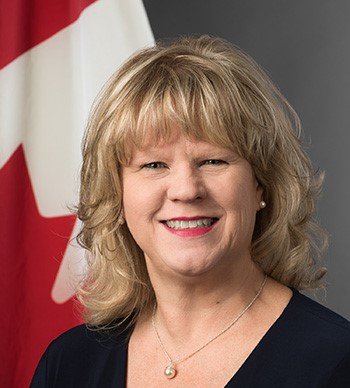Featured News
Joint message from the APEX CEO and the Chair of the APEX Board of Directors

(September 16, 2024)
Dear APEX Members, GC Executives, and APEX Partners:
We are writing to share an important update regarding leadership at APEX. After much reflection and with mixed emotions, Carl Trottier, APEX’s Chief Executive Officer, has decided to retire from the federal public service, effective October 11, 2024.
Leading APEX over the past three years has been a remarkable journey for Carl, marked by both challenges and triumphs. Together, we have made significant progress and driven meaningful advancements on behalf of public service executives. It has been a privilege for us to work together alongside such a dedicated and talented group of individuals.
Carl’s decision to retire culminates a rewarding 35-year career in public service. The experiences and insights he gained throughout his distinguished career have greatly shaped his leadership at APEX. The APEX Board of Directors is profoundly grateful for Carl’s exceptional contributions and unwavering dedication to APEX’s mission. His leadership has been instrumental in our shared successes, and we appreciate the trust and commitment he demonstrated throughout his tenure.
The Board of Directors is also pleased to announce that it has appointed Jean-François Fleury, currently Senior Assistant Deputy Minister, Strategic Directions and Digital Solutions Sector, Office of the Chief Human Resources Officer at TBS, as the new Chief Executive Officer, effective October 1, 2024. Jean-François brings a wealth of experience that is aligned with APEX’s mission, and we are confident that he will continue to drive APEX forward and build upon its strong foundation.
As Carl transitions into this new chapter, the Board of Directors expresses its heartfelt thanks. We look forward to continuing to work with APEX and to the ongoing growth and success of the organization under Jean-François’ leadership.
In the upcoming APEX newsletter being published on September 26th, Carl will share a personal message reflecting on his time with APEX and expressing his gratitude to all who have been a part of this journey. We encourage you to look for this special message and to hear directly from him.
Carl Trottier

CEO
APEX
Geneviève Binet

Chair, Board of Directors
APEX
CEO & Chair Joint statement
Joint message from the APEX CEO and the Chair of the APEX Board of Directors
September 16, 2024
View DetailsCEO Statement
CEO Statement: Response to Announcement on Prescribed Workplace Presence
May 2, 2024
View Detailsawards-of-excellence-highlights
Call for Applications
2022 Call for Applications - APEX Board of Directors
June 1, 2022
View DetailsAwards of Excellence Highlights
Message from the Interim Clerk of the Privy Council and Secretary to Cabinet - Summit 2022
May 19, 2022
View Details




